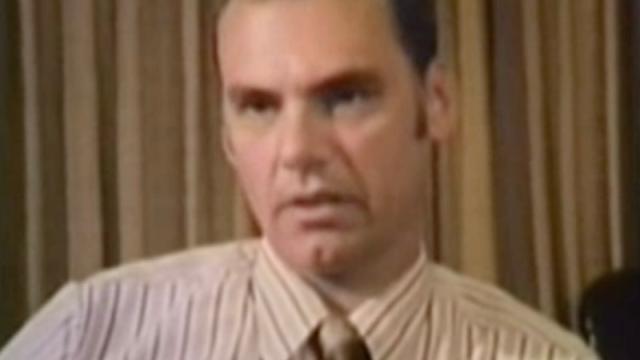Lawrence “Larry” Roberts, one of a small handful of people who can truly be called the grandparents of the internet, died of a heart attack on December 26 at his home in Redwood City, California. He was 81 years old.
In the late 1960s, Roberts was manager of the Pentagon’s Advanced Research Projects Agency, ARPA (now known as DARPA), and oversaw the development of the ARPANET, the precursor to the modern internet. The ARPANET’s first host-to-host connection on October 29, 1969 from UCLA to the Stanford Research Institute were the internet’s first baby steps.
The work that Roberts contributed to the development of the internet is largely thought of as administrative and managerial as opposed to strictly technical, but there are many choices that Roberts made about the design of the internet that will likely take decades to become declassified and known to the public.
For instance, just a week before the ARPANET made its first host-to-host connection in 1969, Roberts and fellow internet pioneer J.C.R. Licklider gave a presentation to the National Security Agency (NSA) in Fort Meade, Maryland. We don’t know exactly what they told the NSA, but we do know their topic of conversation: What networks would look like ten years into the future, in 1979. Larry’s job was about looking to the future on behalf of the Pentagon, a connection to the true military purpose of the early internet that many others have disingenuously shied away from.
Interestingly, many people at universities around the country were initially very sceptical about the promise of networked computers and Roberts essentially had to talk them into trying out the new technology.
“Although they knew in the back of their mind that it was a good idea and were supportive on a philosophical front, from a practical point of view, they—Minsk and McCarthy [two prominent computer scientists], and everybody with their own machine-wanted [to continue having] their own machine,” Roberts said in a 1989 interview published at the Computer History Museum’s website.
“It was only a couple of years after they had gotten on [the ARPANET] that they started raving about how they could now share research, and jointly publish papers, and do other things that they could never do before.”
Before he would leave APRA, Roberts oversaw some of the most important developments of the early ARPANET, including the invention of email in the early 1970s. Email proved so popular that by 1974, a full 75 per cent of network traffic was for electronic mail.
The New York Times obituary on Roberts explains what he did after he left ARPA to go work in the private sector:
Dr. Roberts left ARPA in 1973 to become the founding chief executive of Telenet, a networking company that used packet switching. Seven years later, Dr. Roberts and his co-founders sold Telenet to GTE for $US60 ($85) million.
The start-ups that followed focused on flow control algorithms for internet traffic and did not achieve the same level of success. He ultimately failed to amass significant wealth from the internet.
“It’s like you created the Spider-Man character and it turned into a giant franchise, but you only got paid by the hour for drawing it,” said Pasha Roberts.
Yet Dr. Roberts remained philosophical about this aspect of his life. “It’s sad that it didn’t benefit me,” he said in the 2018 interview. “But it’s interesting, and I love the knowledge I gained from building it and using it and understanding it from the beginning.”
Born in Connecticut, Roberts received his bachelor’s degree in electrical engineering at MIT, got his doctorate in 1963, and would work on ground-breaking technologies during the 1960s at M.I.T.’s Lincoln Laboratory, including very primitive virtual reality. He started at ARPA in late 1966.
These days, other names like Vint Cerf get more credit in the popular press for the development of the internet. Perhaps because unlike the notoriously publicity-hungry Cerf, Roberts didn’t have the same flair for self-promotion as some other internet pioneers. But without Larry Roberts and his determined vision for what networks could do, the history of the internet would’ve certainly looked very different.
You can watch Larry Roberts talk about the history and future of networked computing in a fascinating 1972 documentary called Computer Networks—The Heralds of Resource Sharing.
